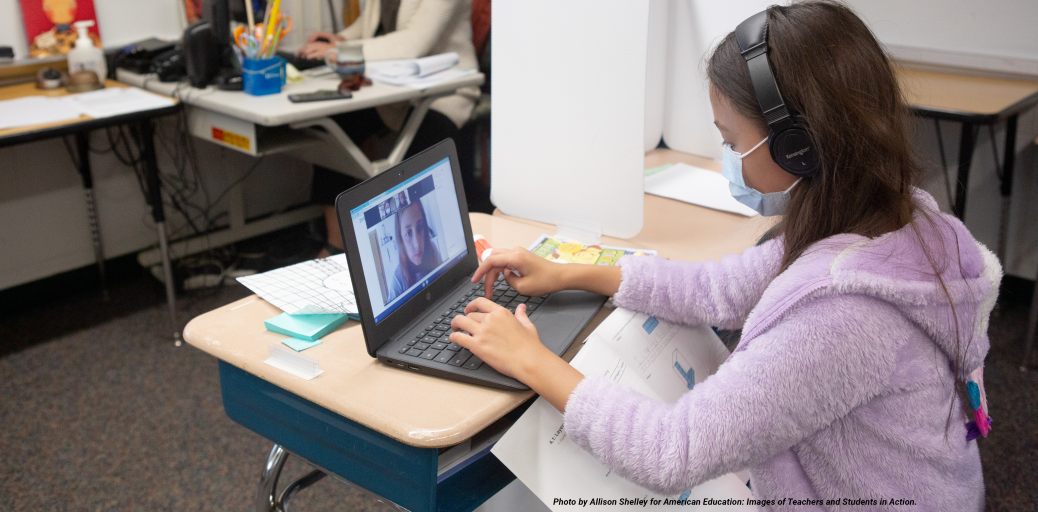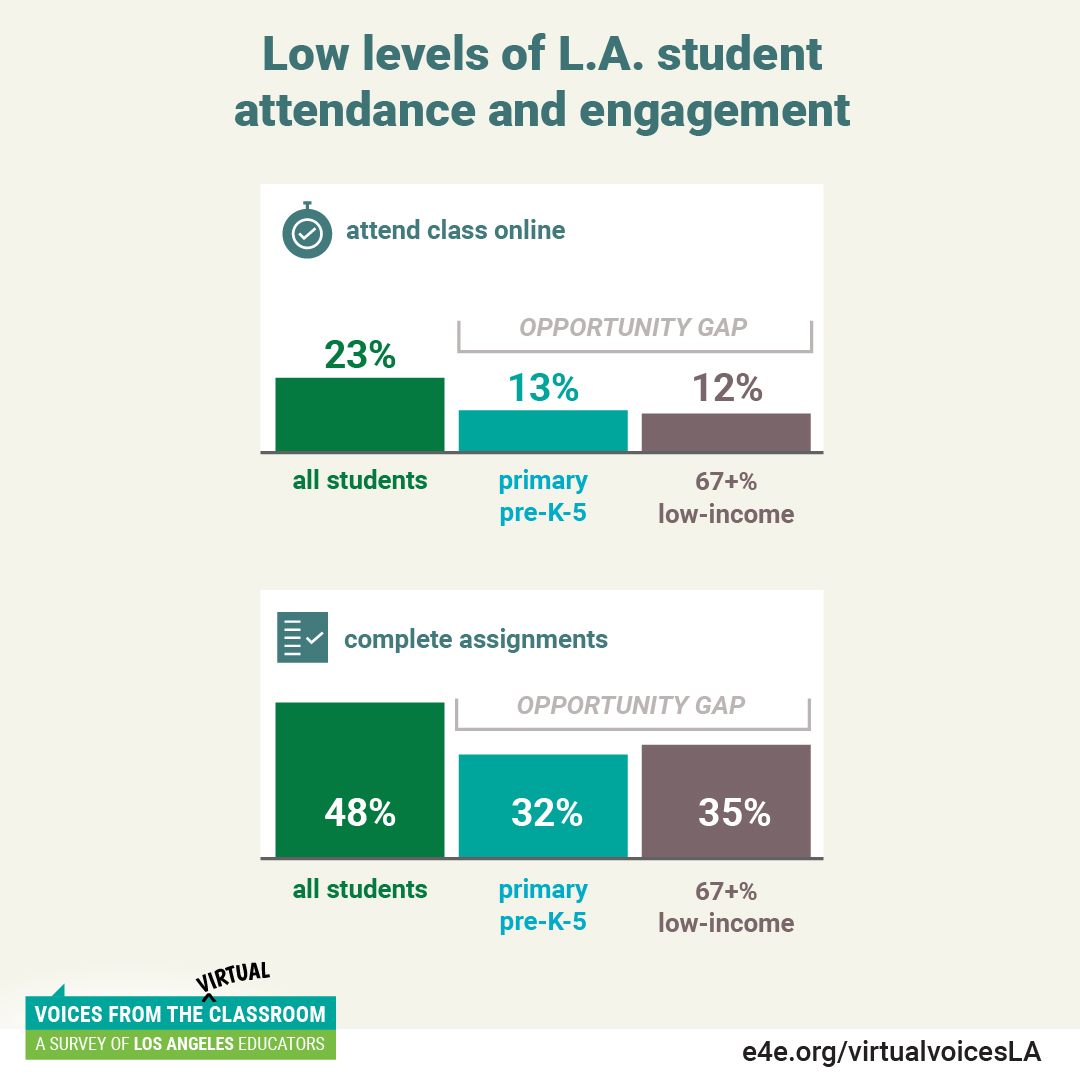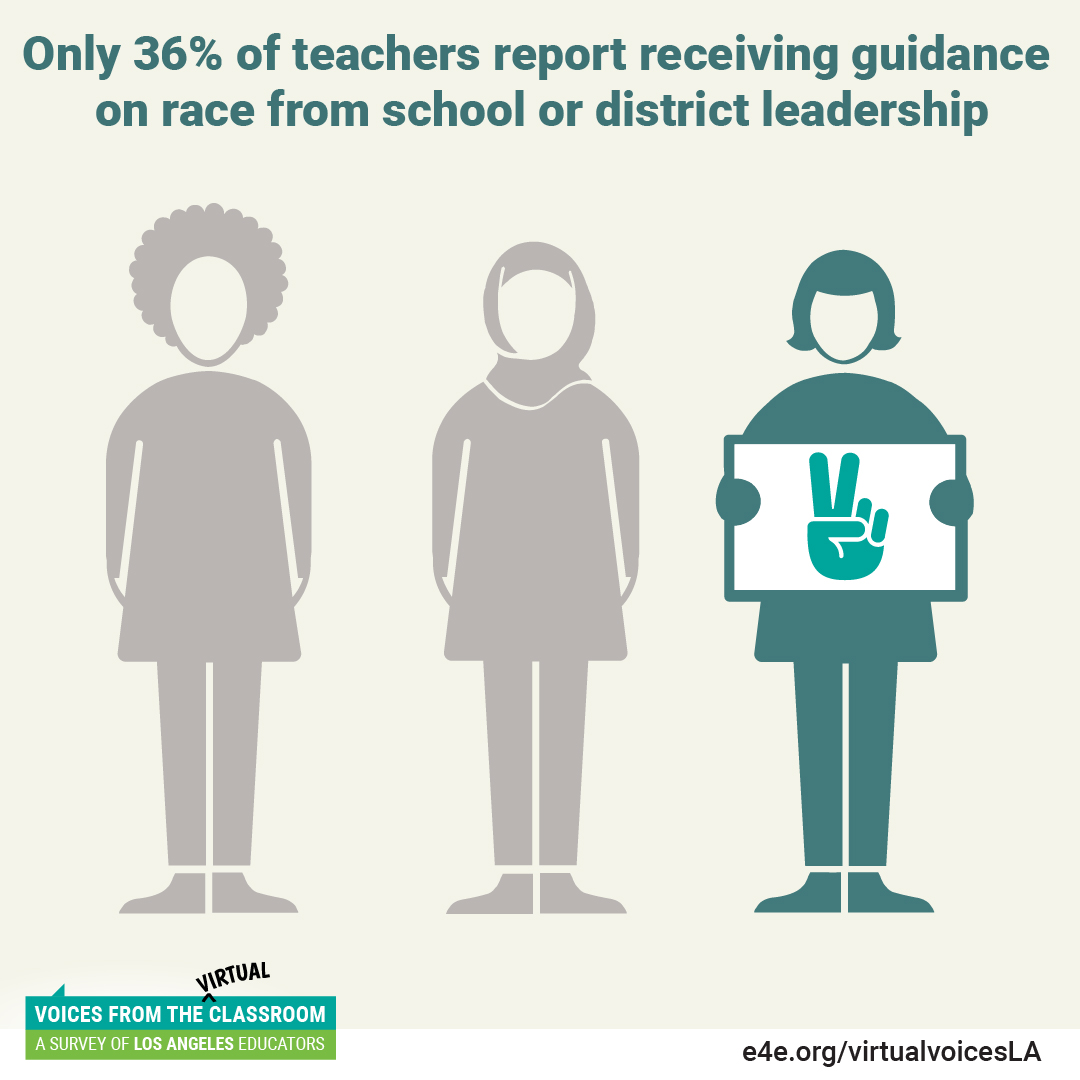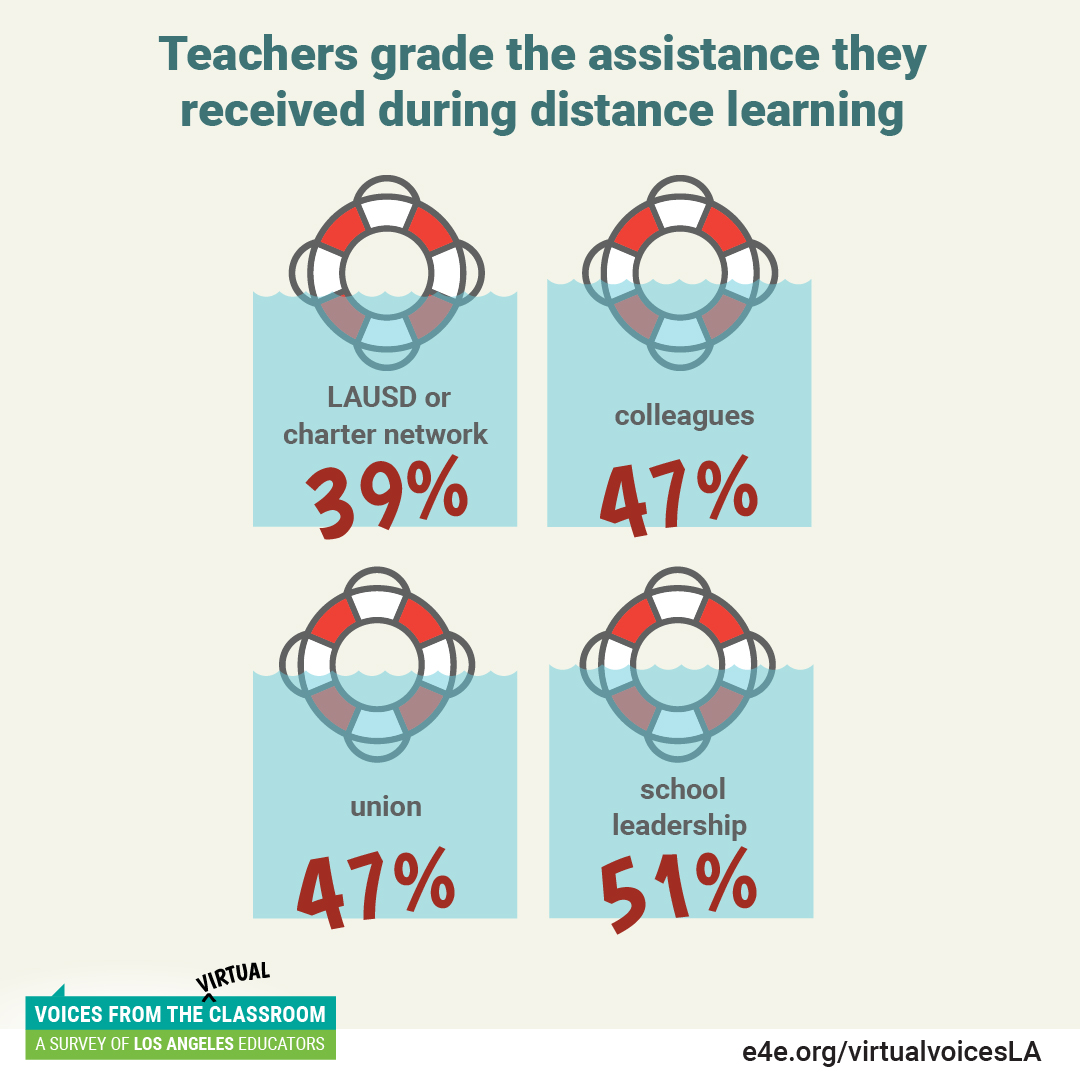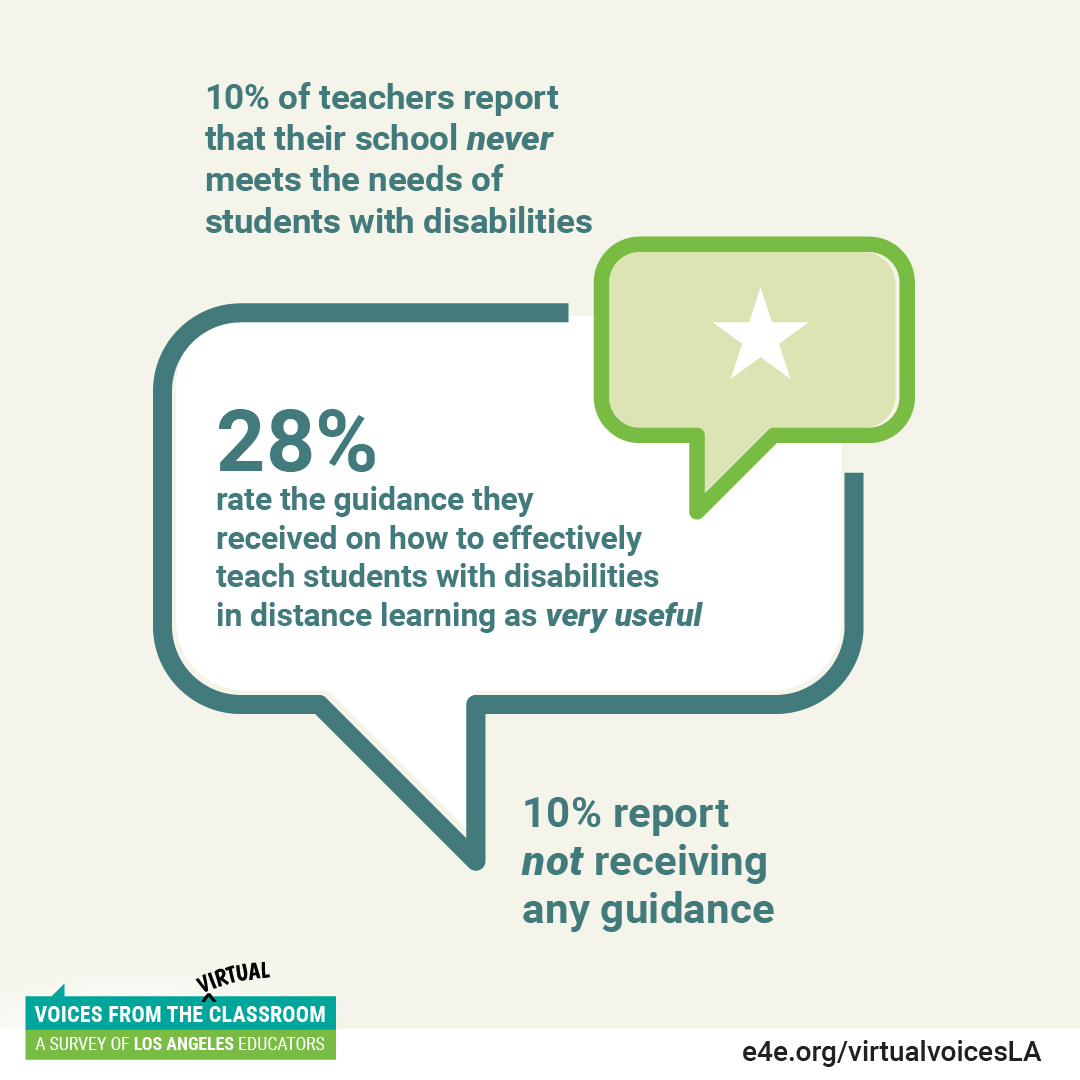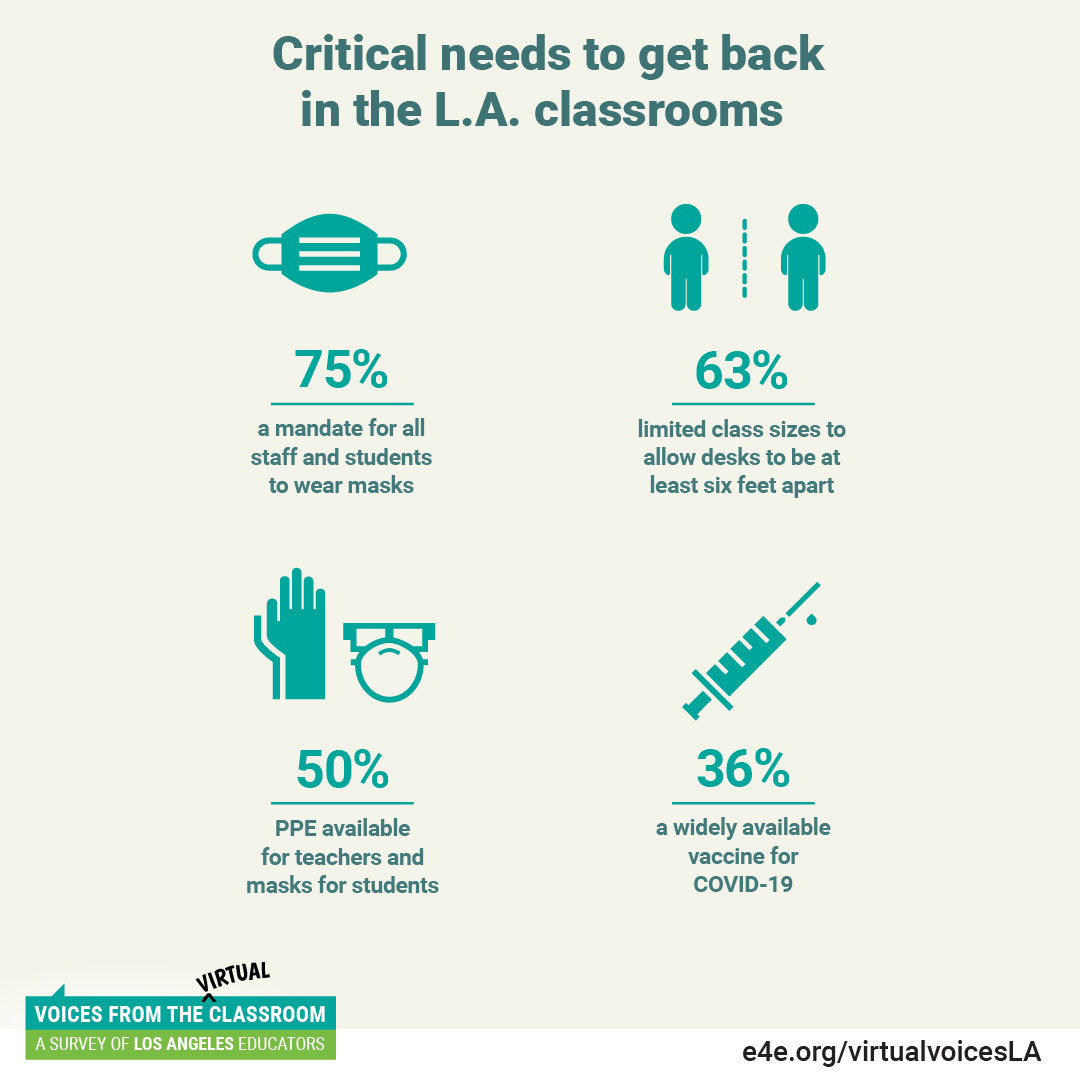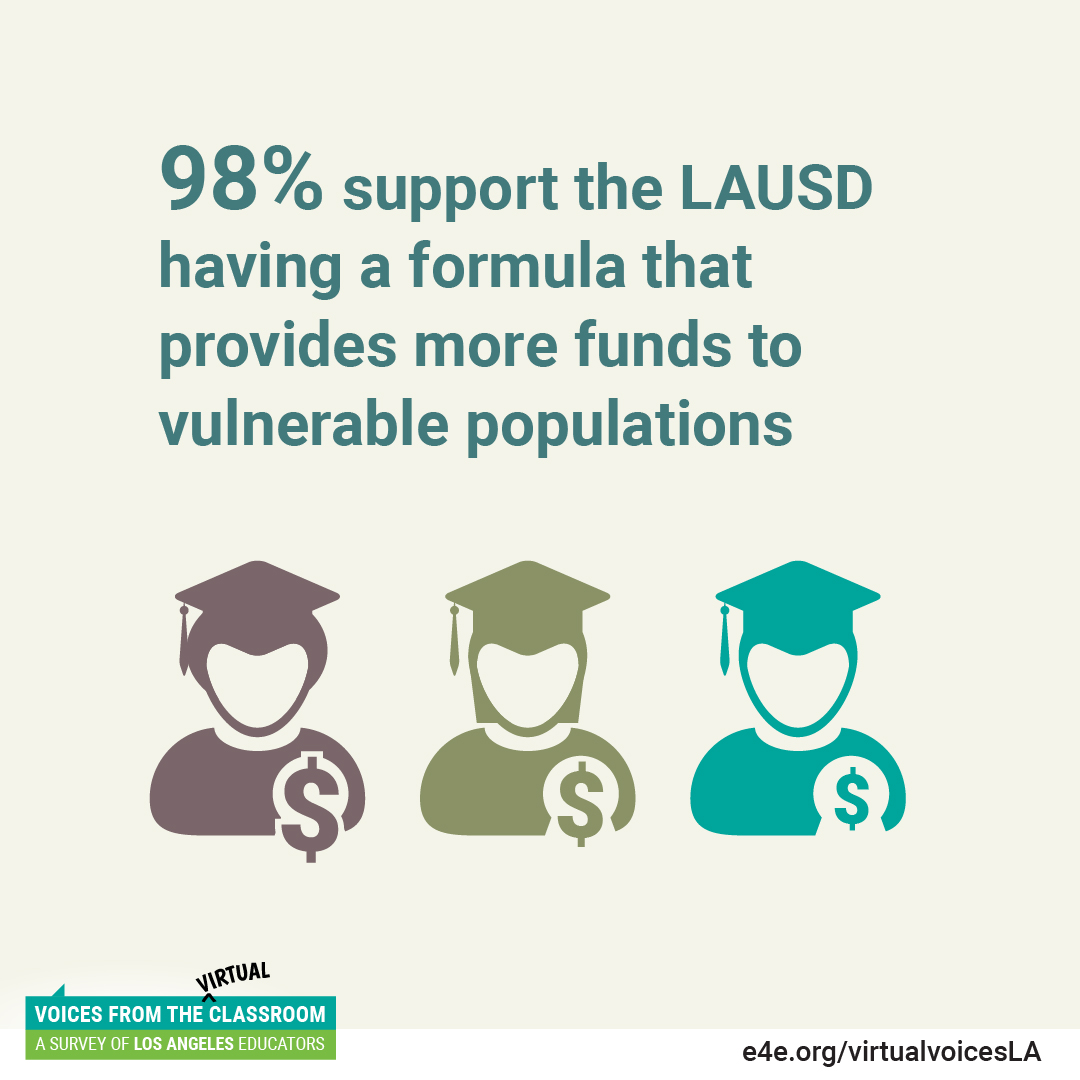Our students are experiencing the largest disruption to education in generations and we are witnessing the widening of the opportunity gap at such an extreme rate that the negative impact in our communities, economy, and democracy will be felt for decades.
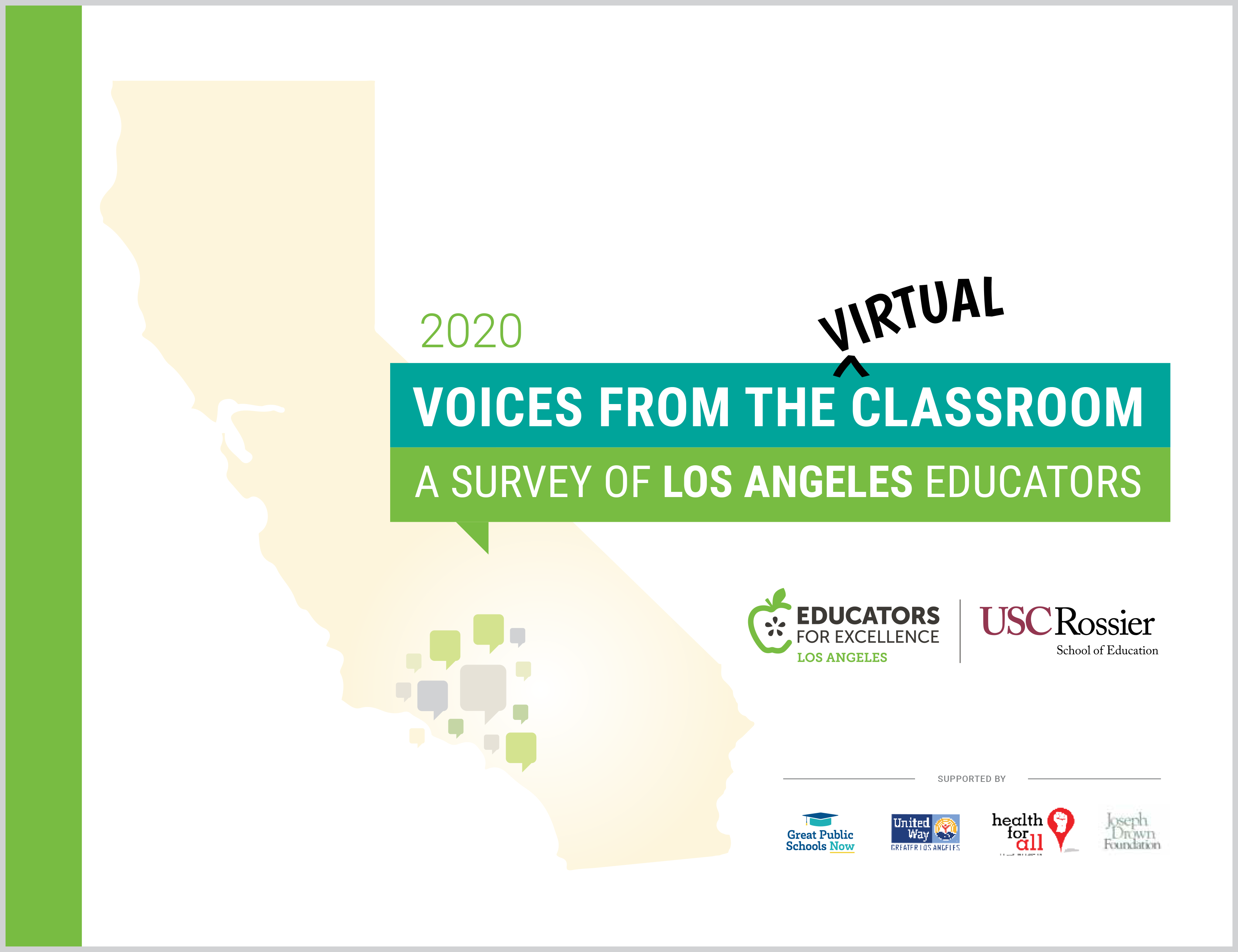 For this reason, E4E-Los Angeles partnered with the USC Rossier School of Education to conduct a broadly representative survey in November 2020 of public school teachers within the Los Angeles Unified School District (LAUSD) geography. Now, more than ever, we need to leverage the expertise and experience of those on the front lines — our educators — to reshape our education system to better serve all students.
For this reason, E4E-Los Angeles partnered with the USC Rossier School of Education to conduct a broadly representative survey in November 2020 of public school teachers within the Los Angeles Unified School District (LAUSD) geography. Now, more than ever, we need to leverage the expertise and experience of those on the front lines — our educators — to reshape our education system to better serve all students.
Methodology
The instrument was written and administered by Gotham Research Group, an independent research firm. It was conducted online and over the phone from November 5 through December 3, 2020, among a representative sample of 502 full-time, Los Angeles teachers from district, magnet, pilot, and charter public schools. The margin of error is ±4.4 percentage points for the full survey sample and higher among subgroups or questions not asked of the full sample.
Major Trends and Findings
Below are key findings from the survey. Read the full report for detailed results, including a closer look at the following teacher subgroups: school type, grades teaching, years teaching, and percentage of students from low-income households served.
-
Ten months into distance learning, low levels of student attendance and engagement are alarming and a lack of access is still creating barriers, with our youngest and more vulnerable populations most impacted.
-
Schools are not regularly meeting the needs of the most vulnerable student populations.
-
In the wake of the killings of George Floyd and Breonna Taylor and the related protests, few teachers received guidance for their classrooms, and only half of the teachers discussed race relations with colleagues and/or students.
-
With the increased demand on teachers’ time during distance learning, teachers would like more time for all their responsibilities, especially supporting their students social and emotional health and professional development.
-
Teachers lack useful guidance on how grades should be awarded during distance learning, resulting in a lack of consensus on how to do so.
-
While distance learning is adding to the challenges teachers face and about half are stressed by the demands the pandemic is placing on them and their families, there is a lack of professional support and guidance.
-
Schools need to implement both health and safety measures and programmatic changes when returning to the classroom.
-
While we continue distance learning, teachers are split on how to handle evaluation and the awarding of tenure and/or bonuses for student performance.
-
Should the pandemic cause budget cuts, teachers do not support layoffs determined solely by seniority and they want a funding formula that supports traditionally underserved populations.
Share the Survey Results
Use the graphics below to share key findings from the survey with your social media networks.
What Educators Have to Say
Listen to E4E-Los Angeles members reflect on and relate their personal experiences to results from Voices from (Virtual) Classroom: A Survey of Los Angeles Educators.
Voices from the (Virtual) Classroom: Los Angeles was made possible with the generous support of Great Public Schools Now, United Way: Greater Los Angeles, the Joseph Drown Foundation, and The California Endowment.
